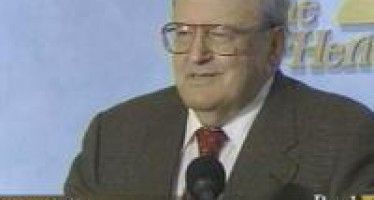Bill to restrict e-cigarette use dies in committee
On Wednesday, legislation that would classify e-cigarettes as tobacco products was amended and held in the Assembly Governmental Organization Committee.
Senate Bill 140 author Sen. Mark Leno, D-San Francisco, dropped his support for the bill after committee amendments struck out portions of the legislation that would have redefined tobacco products and smoking to include electronic devices and vapors emitted from those devices.
Sen. Leno said during the hearing that, by federal definition, products that contain nicotine are technically derived from tobacco. Assemblyman Eduardo Garcia, D-Coachella, also mentioned during the hearing that the FDA “is moving in the direction of classifying” e-cigarettes and similar products as tobacco products.
‘Tobacco products’
Existing law, under the Stop Tobacco Access to Kids Enforcement Act, prohibits selling or furnishing tobacco products to minors, as well as selling without a state license. California’s Smoke Free Act also prohibits smoking in any “enclosed space at a place of employment” – which includes schools, offices, daycares, bars, restaurants and many other venues.
Since the definition of tobacco products and smoking, under SB140’s original text, would expand to include electronic devices and vapors emitted from those devices, the bill would subject e-cigarettes to the same regulations under California’s STAKE Act and Smoke Free Act.
“A growing number of Californians are becoming increasingly concerned about the public’s exposure to e-cigarettes, as is evidenced by the fact that nearly 180 cities and counties have already passed ordinances that restrict e-cigarette smoking,” Sen. Leno said in a prepared statement. “These tobacco products are addicting a new generation of smokers to toxic nicotine, which we already know is highly addictive and contains harmful chemicals. SB140 puts common sense regulations into place statewide in order to protect young people, non-smokers and smokers alike.”
“Recent studies show that e-cigarettes pose potentially serious health risks to users and those who inhale their secondhand emissions. In 2009, the Food and Drug Administration found cancer-causing chemicals, including an ingredient used in antifreeze, in two leading brands of e-cigarettes. The same study also discovered that e-cigarettes labeled as “nicotine-free” had traceable levels of nicotine. In addition, a 2015 study published in the New England Journal of Medicine found high levels of formaldehyde, a known carcinogen, in e-cigarette emissions.”
Opposition to the bill
But Gregory Conley, president of the American Vaping Association, says these measures are mere “hype and conjecture designed to scare” people away from “switching to a potentially lifesaving product.”
“Vapor products are not tobacco products and it makes no sense to regulate them as such. These products do not create harmful secondhand smoke and have been repeatedly shown to be effective in helping smokers kick the habit. California’s 3.6 million adult smokers deserve truthful information about the risks of these smoke-free products. …
“The vapor industry does not oppose sensible regulations designed to prevent youth access to these adult products, including beefing up California’s existing ban on sales to minors. However, SB140 goes far beyond what is necessary to achieve this goal. If this bill is passed, over 1,400 California businesses will be left to deal with the unintended consequences of this rushed regulatory plan.”
Los Angeles, Long Beach and San Francisco have already enacted bans on e-cigarette use in public places. “The e-cigarette industry is almost completely unregulated, and statewide laws are essential to providing uniform protections for the health and wellbeing of all California children and our communities,” said San Francisco Supervisor Eric Mar.
But proponents of the electronic smoking devices say that this kind of fear-mongering propaganda ultimately protects cigarettes and threatens the lives of vapers and smokers. Bill Goodshall, executive director of Smokefree Pennsylvania, said of a similar Pennsylvania bill to ban e-cigs, “Public health benefits every time a smoker vapes instead of smoking a cigarette. The proposed vaping ban … would deceive the public to inaccurately believe that vaping is just as hazardous as cigarette smoking.”
In the Senate, the legislation passed on a 25-12 vote. But once the Assembly Governance Committee approved amendments that would no longer classify e-cigarettes as tobacco products, Sen. Leno immediately dropped his support of the bill, stating it would be “dead on arrival in the Senate” and that he could no longer “associate [himself] with it.”
Assemblyman Ken Cooley, D-Rancho Cordova, also said he would “not support the bill in this form.” He addressed the “rising cost of health care” and how it was the task of policymakers to “cut down discrete sources of costs” — such as potential health problems acquired through vaping. “To deal with costs in the health-care system,” he said, “we have to look at where the cost drivers are and chase them down.”
After passage of the amendments, the bill was held in committee.
Photo credit: www.vaping360.com
Related Articles
Harry Jaffa, RIP
Harry Jaffa, 96, died on Saturday. He was one of the rare persons who combined an influential academic career with
CA road use tax could morph into social engineering experiment
The prospect that Californians will face a new state levy is certain to cause grousing and considerable comment. But a
Pattern developing in reform bill killings
May 2, 2013 By Katy Grimes It’s the first day of May. If you haven’t noticed, the California Democratic Supermajority





